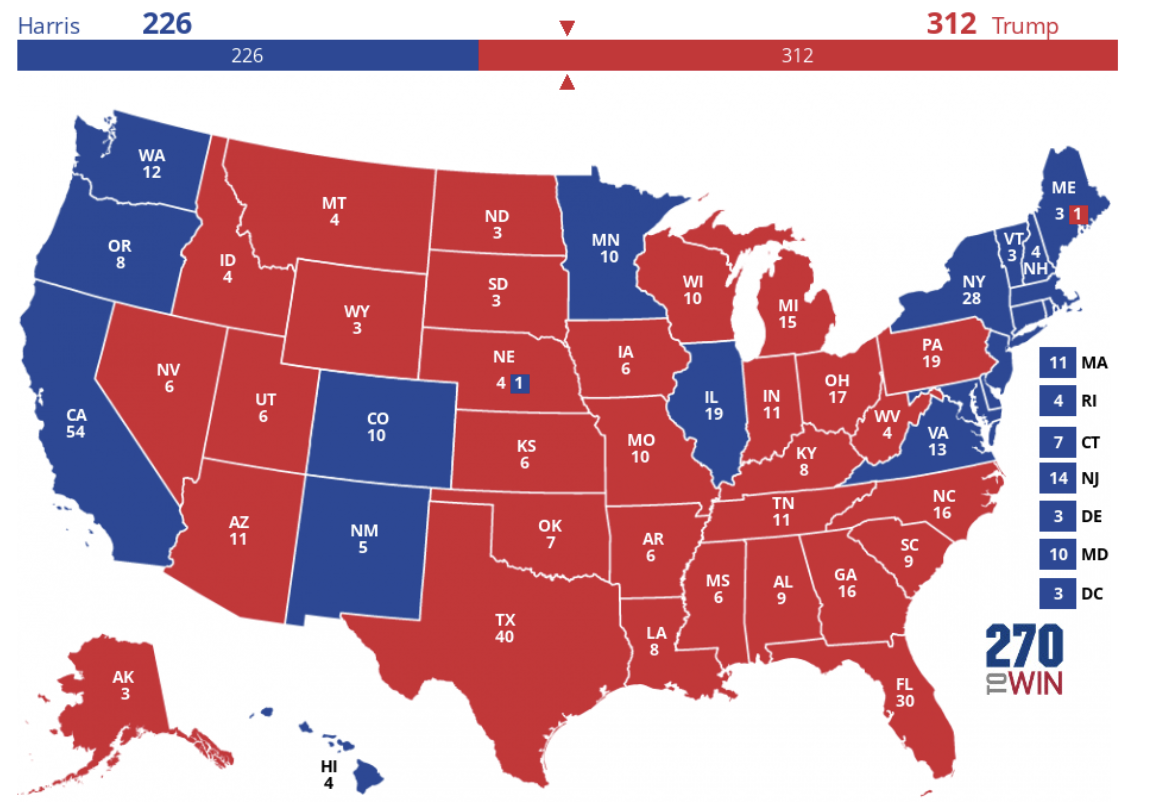In the early hours of Nov. 6, 2024, Donald Trump stood in front of his supporters in his home state of Florida to announce his victory in the 2024 presidential election.
“This is a massive victory for the American people that will allow us to make America great again,” said Trump during his speech, as reported by C-SPAN. “This will truly be the golden age of America.”
Backed by many tech billionaires, Trump is expected to have many policies influenced by the likes of Elon Musk and others on top of his own personal policies. So, exactly how will the Trump administration affect the tech sector?
Evidently, the tech sector has experienced ups and downs over the past few years. With the new increase in the popularity of AI, companies such as Nvidia, Taiwan Semiconductor, and Qualcomm have all been in the black over the last five years, a trend that can be attributed to the increasing need for GPUs, fueling innovation throughout the semiconductor industry. For phones and computers, however, the number of global PC shipments has decreased since the pandemic and Apple and Samsung have both experienced decreasing sales over the last five years.
During the first year of the Biden administration, the bipartisan CHIPS and Science Act was passed. Aiming to revitalize domestic semiconductor manufacturing, create new jobs, and strengthen the American supply chain, the CHIPS Act has brought an increase in investment in American chip manufacturing, fueling innovation.
“Right now, only 10 percent of semiconductor chips are made in the US, a disproportionate number of them are made in Taiwan,” said Civil Dialogue Fellows advisor John Monahan. “The CHIPS Act would incentivize those companies to make them in the US.”
During his campaign, Trump often criticized the bill, pointing out its high cost and proposing tariffs as an alternative solution.
“We put up billions of dollars for rich companies to come in and borrow the money and build chip companies here, and they’re not going to give us the good companies anyway,” said Trump, according to CNBC.
Many economists believe that Trump won’t entirely revoke the CHIPS Act but will instead take a new approach to it. Trump’s America First policy pushes back against products made in rival countries such as China, proposing large-scale tariffs in order to make it harder for foreign companies to sell their products in the United States. This would, in theory, push the consumer to choose the more affordable, American product. Since most phones and chips are made in countries like China, the affordability of some of those products would be in question with Trump’s self-described tariff policies.
“It affects the consumer more than the company,” said Monahan, “It can affect the company, but it’s affecting the company not because they are paying the US government, but if their products become less affordable.”
Regarding big tech companies, especially Google, Trump’s reelection could provoke a wide range of outcomes in the ongoing antitrust cases against them. Historically, Trump has aired on the side of caution regarding the possible breakup of Google, hinting that he might intervene in the case. Furthermore, pending lawsuits against Apple, Meta, and Amazon from the Department of Justice and the Federal Trade Commission could be affected by the Trump administration, with the common conservative theme of deregulation possibly being used to preserve the strengths of these big tech companies.
In summary, Donald Trump’s election could mean many things for the tech sector over the next four years. Through his implementation of tariffs and regulation of big technology companies, Trump could profoundly change how the average consumer interacts with technology and spark a major shift in the overall tech market.
Edited by Samanyu Ganesh





